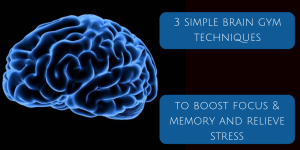

Inconsistent benefits of treatments, comprising cognitive training and cognitive stimulation, have been reported. Based on the possibility of side effects of drugs, people are very interested in the non-pharmacological treatment of AD ( Raggi et al., 2017). Notably, it develops into AD during 5 years in over half of the MCI patients ( Gauthier et al., 2006). With respect to the definition of MCI, it is regarded as a syndrome of cognitive decline that is higher than the expectation of the age of individual and level of education without significantly obstructing with daily living activities.

Studies have shown that drug combinations are effective and that there is no efficient treatment for patients diagnosed with preclinical AD or MCI. The diagnosis and treatment of AD involves many challenges. About 81% of AD patients are aged over 75 years as estimated by the Alzheimer’s Association, 2016). Aging can be treated as the greatest risk factor for AD progression. Other complications such as bladder and bowel problems, depression, infection, and head trauma or broken bones are the main cause of imbalance and incoordination in these patients ( Higuera, 2016).Īlzheimer’s disease is associated with common causes of dementia and is estimated to account for 60–80% of these cases ( Alzheimer’s Association, 2016). Agitation and anxiousness are common complications in individuals diagnosed with AD.

Individuals with AD develop progressive mild cognitive impairment (MCI), leading to the development of neuropsychiatric manifestations. This symptom is the most frequent cause of neurogenesis. Compared with medications, exercise has been shown to have fewer side effects and better adherence.Īlzheimer’s disease (AD) is a progressive neurodegenerative disorder characterized by memory loss and multiple cognitive disorders ( Reddy and Oliver, 2019). Physical exercise seems to be effective in improving several neuropsychiatric symptoms of AD, notably cognitive function. Most prospective studies have proven that physical inactivity is one of the most common preventable risk factors for developing AD and that higher physical activity levels are associated with a reduced risk of AD development. Patients with AD who presented with long-term exercise interventions appeared to have improved blood flow, increased hippocampal volume, and improved neurogenesis. We performed a narrative review of existing literature on the effectiveness of long-term exercise interventions in improving cognitive function and neuropsychiatric symptoms in patients with AD. This narrative review aimed to summarize evidence regarding the responses to exercise among patients with preclinical Alzheimer’s disease (AD) and the effectiveness of long-term exercise interventions in improving cognitive function and neuropsychiatric symptoms.


 0 kommentar(er)
0 kommentar(er)
